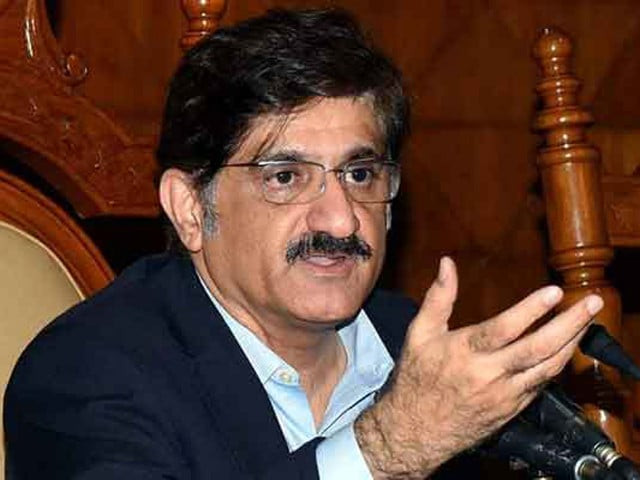CM orders pursuance of funds from donors
Asks departments to expedite reconstruction of flood-hit infrastructure

Sindh Chief Minister Murad Ali Shah has directed that the reconstruction and rehabilitation of flood-affected infrastructure should be expedited. While presiding over a meeting to review the progress in the ongoing rehabilitation of flood-hit regions of Sindh, he directed his team to pursue funding from donors where it is still pending.
The meeting, held at the CM House, was attended by Chief Secretary Dr Fakhre Alam, Chairman P&D Sahkil Mangejo, PSCM Agha Wasif, Secretary School Education Dr Shireen Narejo, Secretary Health Dr Mansoor, Secretary Irrigation Niaz Abbasi, Secretary Works Nawaz Sohoo, CEO Peoples Housing Khalid Shaikh, and other concerned officers.
While briefing the CM, Dr Narejo stated that 19,808 schools were damaged by the 2022 floods, with 7,503 requiring full reconstruction. Funding commitments of Rs60.972 billion from friendly countries like the European Union, China, and donor agencies ADB, Federal PSDP, and Provincial ADP were made for the construction of 2,020 school buildings.
The provincial government has initiated the construction of 431 schools for Rs4.428 billion, but funds committed by friendly countries and donor agencies are still in the pipeline. The CM instructed P&D chairman to secure project approvals from CDWP and other agencies, followed by the release of funds. The CM also directed the P&D Department to outline a plan for the reconstruction of the remaining 5,483 fully damaged schools.
Secretary Health Dr Rizvi informed the meeting about the commencement of the Rs61,600 million 1,000 Days - Integrated Health and Population Program, supported by the World Bank and IsDB, with a Sindh government share of $30 million. The project is expected to conclude in 2026-27.
The project encompasses the refurbishment of 392 dispensaries, including equipment provision. Reconstruction efforts involve 121 Basic Health Units (BHUs), 97 Rural Healthcare Centres (RHCs), and 39 Taluka Headquarters (THQ) Hospitals that have been completely damaged.
Moreover, the project will establish hospital-based blood banks at four DHQ hospitals: Kashmore-Kandhkot, Sujawal, Tando-Allahyar, and Tando Mohammad Khan. These blood banks will be linked with regional blood centres. The project will also establish diagnostic laboratories at 39 THQ hospitals, 10-bed nurseries at 39 THQ hospitals, and strengthen operation theatres at 39 THQ hospitals.
As part of the project, four Regional Training Institutes (RTIs), six Public Health Schools, and schools damaged during floods will be repaired and rehabilitated. The project aims to provide micro-financing and skill development opportunities to 6,000 women and deploy 1,176 community medical workers, 1,960 community health workers, and 392 family welfare workers to strengthen the local healthcare system.
The CM was informed about the signing of a MoU between PPHI and the Program for the operationalisation of 50 Dispensaries under PPHI Management. Initially, 50 dispensaries have been handed over to PPHI. Contracts for the procurement of 60 ambulances, 30 mobile medical vans, and five mobile laboratories, along with fabrication, have been awarded. The draft Terms of Reference (TORs) for a third-party consultancy firm for skill development through vocational training of 6,000 eligible women have been submitted to the Islamic Development Bank for approval.
W&S Secretary Sohoo updated the CM on the progress on the Sindh Flood Emergency Rehabilitation Project (SERP), stating that work on 131 roads spanning 19 districts with a length of 680km has commenced, with physical progress ranging from 35 to 54 per cent. The CM directed the works department to expedite the work for timely completion.
The CM also directed other departments to prepare progress reports on flood-affected works for review.



















COMMENTS
Comments are moderated and generally will be posted if they are on-topic and not abusive.
For more information, please see our Comments FAQ